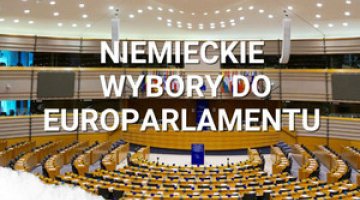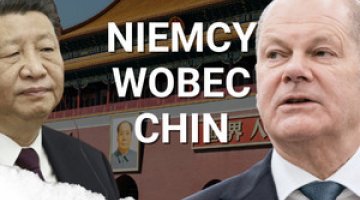Germany radically revises its policy towards Russia

Germany has decided to radically revise its policy towards Russia. The government of Olaf Scholz has suspended the certification process of the Nord Stream 2 gas pipeline, agreed to the exclusion of selected Russian banks from the SWIFT payment system, and offered to supply arms to Ukraine. At a special session of the Bundestag on 27 February, the chancellor also announced key decisions regarding Germany’s domestic policy in this context: consent to a radical increase in defence spending, and the construction of LNG terminals. These are radical changes, forced upon Germany by the scale and brutality of Russian aggression, as well as pressure from its partners and allies in the EU and NATO. Ukraine has enormous support for its self-defence among German society. Time will tell if and to what extent these announcements will be implemented, but a return to the previous special relationship between Germany and Russia now seems inconceivable.
Berlin’s long-standing resistance to using Nord Stream 2 as a tool of politics and pressure, its refusal to accept Russia’s exclusion from the SWIFT system, and its refusal to agree to supply arms to Ukraine, all caused outrage from part of German society, experts and the media, and threatened to isolate the country both within the EU and NATO. As a result of growing pressure, both domestically and from abroad, the German government changed its approach and presented a new position to the Bundestag. At an extraordinary parliamentary session, all those who spoke – from the chancellor to pro-Russian politicians from Die Linke and the AfD – condemned the aggression against Ukraine.
A few points from Scholz’s extremely rhetorically blunt speech deserve special attention. He stated that the Russian attack marked the beginning of a new era in international politics, and called Vladimir Putin a warmonger. While citing the sanctions against Russia to date, he highlighted those which Germany had categorically opposed up to that time, such as the use of the SWIFT system. He also announced that Germany would send arms to Ukraine, and that new investments would be made in Germany’s military, including the creation of a special fund of €100 billion and an increase in spending on defence to over 2% of GDP annually. German energy independence will be increased by building LNG terminals and accelerating the development of renewable energy sources. The chancellor also stressed that Germany would not give up diplomatic talks and activities, but that “they would not be naive; both sides need to be ready for dialogue”. Both the tone and the content of his statement must be seen as unprecedented for an SPD politician
Vetting policy assumptions more quickly
The reactions of German politicians, experts and opinion leaders, as well as the general public, to Moscow’s recent actions indicate that the process of vetting the latest version of Germany’s eastern policy is speeding up. Once again in the last few years this change is being made to the detriment of Russia. Although the Social Democrats are most often identified with the promotion of ‘special’ relations between Germany and Russia, the current phase of this process under Scholz’s rule is proving much more radical and far-reaching than it was during the last four terms of Christian Democrat chancellor Angela Merkel’s government.
The speeches made by Scholz and other representatives of the government, as well as the opposition Christian Democrats during the Bundestag session on 27 February, suggests that the attack on Ukraine and the start of the war by Putin have prompted the political elite to revise the main assumptions of its Kremlin policy. Contrary to previous beliefs, the following truths have become apparent: it is currently impossible to build the security of Europe in partnership with Russia; pacifism, dialogue and diplomacy do not guarantee peace; economic ties do not by definition stabilise political relations; energy dependence is politically harmful, and in the case of relations with authoritarian regimes, it does not mean interdependence, but only vulnerability. It was also noted that the special obligations arising from the guilt and responsibility for World War II apply not only to Russia, but also to other countries of the former Soviet Union, and the attachment to diplomatic solutions cannot mean that Germany acts as a mediator in a conflict in which – as part of the West, NATO and the EU – it is also a party.
The revision of these assumptions has consequences which Germany is beginning to absorb at an accelerated pace. Convictions are rising that it is necessary to build up European security against Russia; this is related to the need to increase Germany’s involvement in NATO, strengthen the EU’s internal cohesion and its cooperation with other world democracies. That military power may be one of the instruments of the state’s policy and actions to preserve peace (hence the announcement of sending arms to Ukraine, but also a significant strengthening of the Bundeswehr and an increase in defence spending). That it is possible and indeed necessary to use one’s own economic power to fight the aggressor, e.g. by introducing significant financial and economic sanctions. That energy dependence makes it impossible for a state to conduct equal negotiations in the event of a conflict. Hence it has become necessary to diversify the sources of energy carriers, and to announce the construction of two LNG terminals and accelerate the development of renewable energy. Ukrainian society is gaining permanent subjectivity and a place in German consciousness.
The Force Awakens?
It seems that Germany, as both a state and as a society, has understood that Russia’s war with Ukraine is a threat not only to the region, but also to the free world, democracy and the system of values which Germany has professed since itself becoming a democratic state. Some politicians have even said that, in an extreme case, Germany itself may also be at risk.
The special relationship with Moscow which would have allowed it to really influence the latter’s decisions, has turned out to be a fiction. This process of awakening is painful, and it will not be easy to implement Scholz’s announcements and change the government’s strategy. The pro-Russian lobby has quieted down for the time being, but remains strong, especially in business circles and in the eastern Bundesländer. Representatives of two pro-Russian parties in the Bundestag, the AfD and Die Linke, together enjoy around 20% of the electorate’s support.
The sanctions will also significantly affect the German economy, so persistence in maintaining them will be necessary. The key changes mentioned by the chancellor and his ministers have completely upended the previous strategies of all the parties making up the ruling coalition, so it will take some time for the party structures and activists to fully identify with the new line.
The decisions to supply arms, the plans to modernise the Bundeswehr, and the acceleration of the energy policy reforms will often require legislative changes, as well as many tedious and politically and financially difficult undertakings. The opposition Christian Democrats want to take part in their implementation and in setting the directions for the new policy, as the head of the CDU, Friedrich Merz, announced in a speech on 27 February.
If the government succeeds in overcoming these problems, Germany will be able to slowly regain its authority as a country which can shape the EU’s foreign policy, particularly in two dimensions: actively supporting Ukraine in its efforts to obtain EU membership, and as a ‘partner in leadership’ with the US in the West’s China strategy. In the next few years, Germany could also significantly strengthen NATO’s defence capabilities, not only by allocating 2% of GDP to the development of the Bundeswehr, but also by focusing on political activities related to boosting the presence of NATO forces in the countries of the eastern flank.




